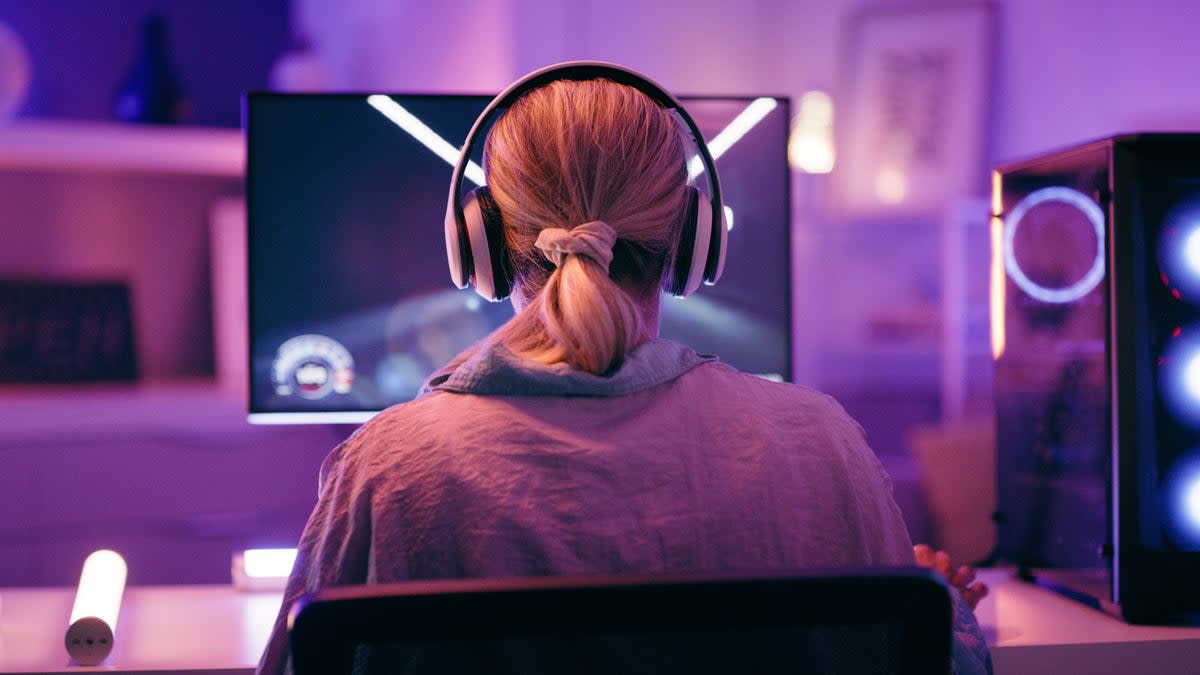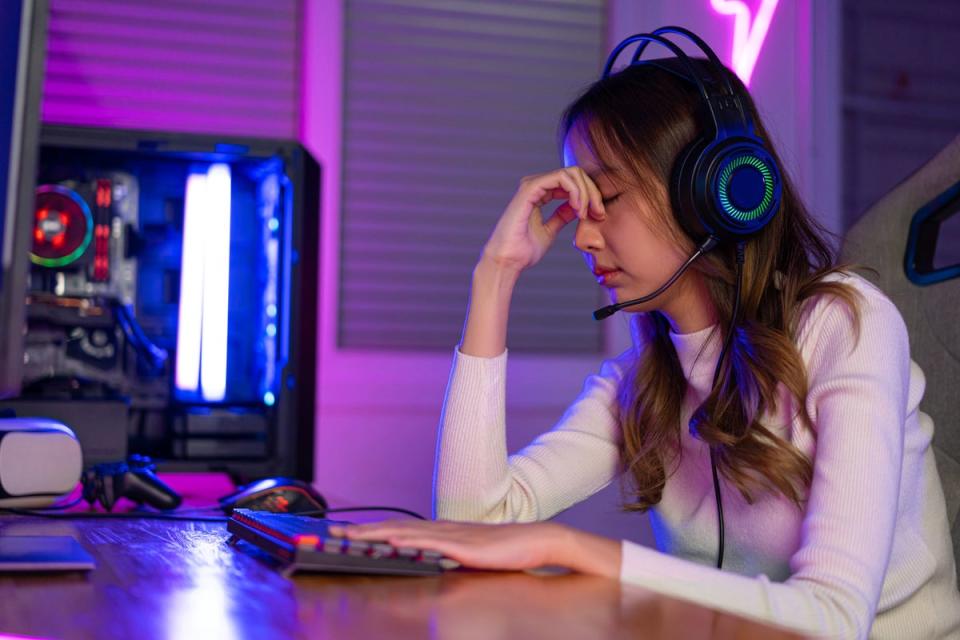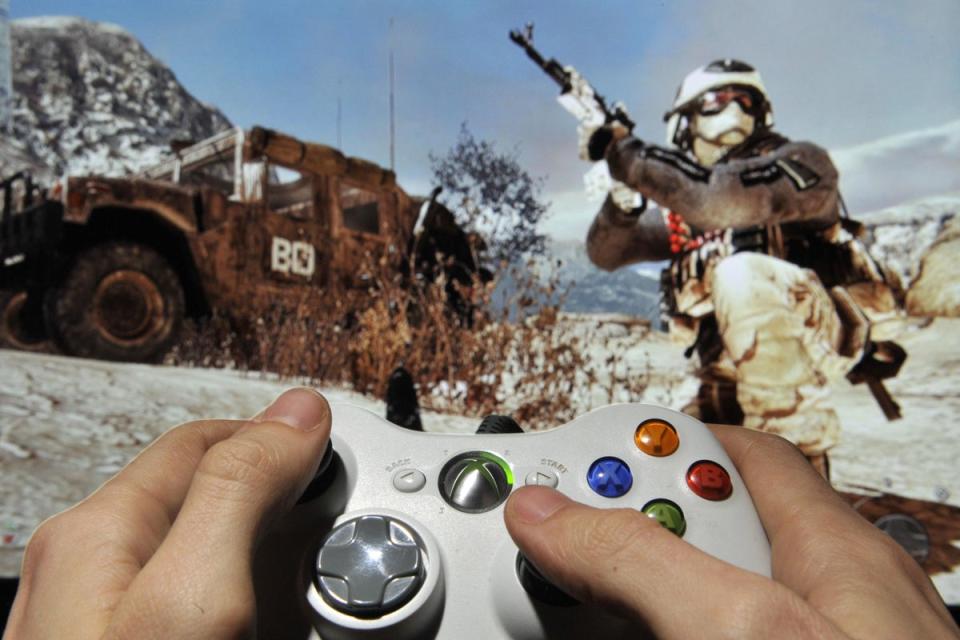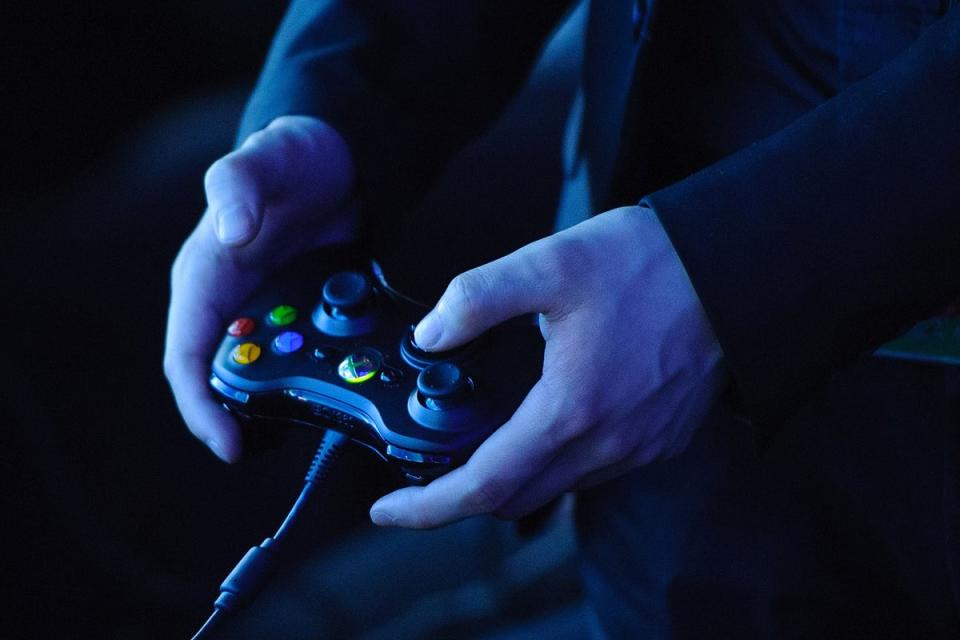‘It’s dehumanising’: Female gamers facing sexual harassment, rape threats and misogyny online

It was during the Covid-19 pandemic that Lydia Fox decided to start live-streaming her gameplay on Twitch, a site dedicated to showcasing video gaming.
Describing herself as an avid gamer, she was no stranger to misogynistic and toxic comments, yet she soon found herself receiving frequent anonymous emails with disturbing sexual and abusive content.
“It got to the point that it affected my mental health so much that I had to quit,” she told The Independent. Now, she only plays with female gamers and avoids playing online with strangers in order to escape any potential abuse.
Her experience echoes those of other female gamers, with a new survey in the UK and US revealing that two in three female players experience toxic and threatening behaviour from male gamers.
More than one in 10 of the women surveyed reported that they had received rape threats, with a further 34 per cent stating that they had received sexual harassment online.

Nearly half of the 1,004 participants in a survey conducted by market research company Bryter said they had received verbal abuse, with others sharing that they had been stalked on other platforms.
As a result, a quarter of female players avoid certain genres, such as sports and shooters, to avoid the negative environments they foster.
For Katya Varbanova, her interest in gaming began as a teenager when she discovered her talent at the multi-player shooter game Counter-Strike. Despite frequently encountering misogynistic comments from male players and complaints to the administrators that as a girl “she couldn’t be that good”, she just put it down to the experience of the particular game.
Nearly 20 years later, she took up playing with her fiance during the pandemic and quickly realised that attitudes towards women had not changed.
Often referred to as a “sad waitress drowning in her game” or told to get back in the kitchen, she was left feeling discounted and disheartened. “It’s very dehumanising, undermining and very unfair,” she told The Independent.

The latest report found that abuse was worse among the 16-35 age group, with participants reporting that negative reactions from men are almost instantaneous once it becomes clear that there is a woman in the game.
Having gamed with both friends and strangers, Ms Fox quickly learned from experience to always keep her microphone off or to choose a “non-feminine” gamer tag to avoid abuse.
“On the odd occasion I didn’t and then played games such as Call of Duty, I would end up with remarks such as ‘give the controller back to your boyfriend’ or ‘get back in the kitchen’,” she said.
After creating her Twitch account, she was forced to ensure she had active moderators due to misogynistic comments, which often accused her of only having a following due to being a woman.
“I found I would receive a lot of emails through my business email that were of a similar nature, and sometimes some very disturbing content, both sexually and borderline abuse from anonymous email accounts,” she said.

One female gamer, who wished to remain anonymous, said that she had been sent a graphic rape threat, before she began noticing that random bot accounts had started following her public social media pages.
One woman told the report: “The worst thing I’ve been told by a male while gaming is ‘I will find out who you are and rape and kill you’. I stopped playing for years and still to this day I’m still very private with my life.”
In 2022, another set of data revealed that the majority of women don’t report these behaviours as they largely feel there are rarely consequences for the perpetrators, with one in five stating that it had an impact on their mental health.
“I’ve never really heard of any support systems in place other than what you’d find on social media with the block and report functions,” Ms Fox said. “I find a lot of women have started communities online to encourage women to play together instead, but I don’t feel the toxicity is something that is being handled.”
Jenny McBean, research director of gaming at Bryter, said: “While it is certainly positive to see a slight decrease in the amount of women gamers experiencing toxic and threatening behaviours, the levels are still worryingly high. Women now make up around half of the gamer population and yet are still made to feel excluded and uncomfortable.”
Women’s experiences within the gaming world have been a source of concern for more than a decade, with an online harassment campaign Gamergate emerging in 2014.

Mainly attributed to right-wing male gamers leading a backlash against the rise of women in the industry, several prominent female gamers were sent death threats, doxxed online and trolled.
Marie-Claire Isaaman, CEO of the not-for-profit Women in Games, said: “This important research has enabled us to amplify discussion and dialogue on the subject at our events and also work towards addressing the challenge with solutions.
“Although slight, it is good to see reductions in the levels of toxicity in the 2023 survey. It brings hope that the tide can turn, on this particular area of harassment, that occurs in the ‘virtual playspace’.
“Clearly there is more work to be done and Women in Games calls on industry and government to support us and our initiatives in tackling this negative aspect of gameplay.”
Rape Crisis offers support for those affected by rape and sexual abuse. You can call them on 0808 802 9999 in England and Wales, 0808 801 0302 in Scotland, and 0800 0246 991 in Northern Ireland, or visit their website at www.rapecrisis.org.uk. If you are in the US, you can call Rainn on 800-656-HOPE (4673)


